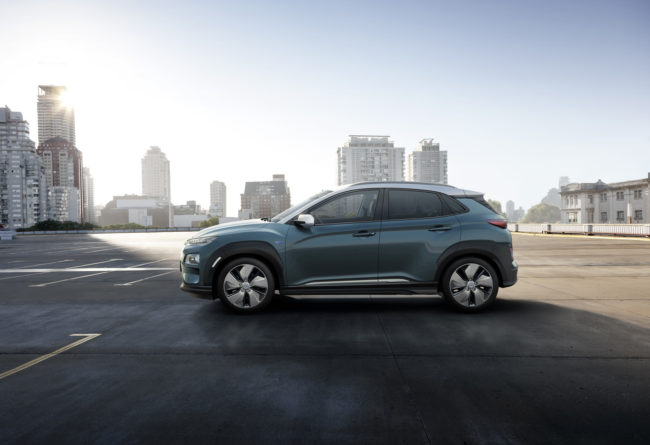Pressure at the pump prompts companies to explore electric vehicle fleets
As the cost of fuel has reached new heights, one of New Zealand’s leading vehicle leasing and finance companies has seen an increase in enquiries from businesses looking to adopt EVs on their fleets.
Lance Manins, CEO of Driveline, says there’s been a 26% increase in requests for electric vehicles through Driveline since April, potentially due to regional fuel taxes and fluctuating fuel costs putting businesses ‘under the pump’. Manins predicts the trend of moving towards EVs will continue to skyrocket in 2019.
“Businesses embracing electric vehicles is something we’ve been watching closely for several years and we’ve seen an influx of enquiries from those interested in adding electric vehicles to their fleet. Buying EVs can be a big financial outlay and leasing is becoming a more attractive alternative for many.”
There are now more than 10,000 EVs on the roads in New Zealand – up from 440 just four years’ earlier. This growth is in line with the Government’s target of having 64,000 EVs on our roads by 2021.
Recent Ministry of Transport findings reveal a higher number of private individuals own EVs, as opposed to companies, and currently EV ownership is most prevalent in Auckland, however, Manins predicts this will change over time.
“Progressive companies are looking at being sustainable and making a positive environmental and social impact. EVs fit the bill in those areas, as well as providing tax advantages,” says Manins.
With EV charging networks being available throughout 88 percent of the country and indications that an EV will soon be able to be charged at one of those stations within just 15 minutes, business commuters have reduced range anxiety and more viable options for getting to destinations.
“We are expecting to see a big line-up of EV releases in the local market in the next five years. This will be a game-changer with increased mileage of some vehicles reaching 400km and purchase prices dropping. Next year, for example the Tesla Model 3 will be available, and the cost to buy won’t be much more than the outlay of purchasing an imported model of the latest Nissan Leaf.”
Manins says many businesses are set to embrace a greater choice of vehicles, improved driving ranges and more competitive options for buying or leasing.
“Kiwis are feeling the impact of increased fuel costs, a pressing issue this year. Drivers that transition to an EV from an internal combustion engine vehicle could also save on annual servicing which amounts to around $400, as well as fuel and taxes which add up in the long-term,” adds Manins.
The Driveline team advise all businesses on taking a visionary approach to fleet management. According to the EECA, businesses are focusing on switching their fleets to low emissions technology while ensuring that any remaining fossil fuelled vehicles are as efficient as possible.
Manins says; “It’s just a matter of time before EVs will be common-place within businesses. The key thing is education on future environmental benefits and the financial benefits for change to happen. We’re excited about what the future holds in this space for Kiwi companies.”
ENDS
ELECTRIC VEHICLE FAST FACTS
- The battery life of an EV is between 120km – 450km, depending on the make and model.
- EVs can be charged through a wall socket or dedicated wallbox charger using a cable and an on-board AC charger in the car.
- The best way to calculate how quickly an EV will charge is to divide the capacity of the batteries by the voltage of the wall socket, charger and cable (whatever of the three is the less powerful).
- Based on the average-sized petrol vehicle, an EV driver will save approximately $2,500 each year on fuel and servicing costs (source: Ecotricity)
- It costs about $3 to drive 150km in an EV and $200 every 6 months to service an EV.
- Drivers spend about a quarter of the money they would spend on petrol on electricity to travel the same distance.
- Portable charging options are available for emergencies and can be carried in the vehicle.
- The cost of charging infrastructure can range from under $1,000 for an AC charger to over $50,000 for a DC charger.
